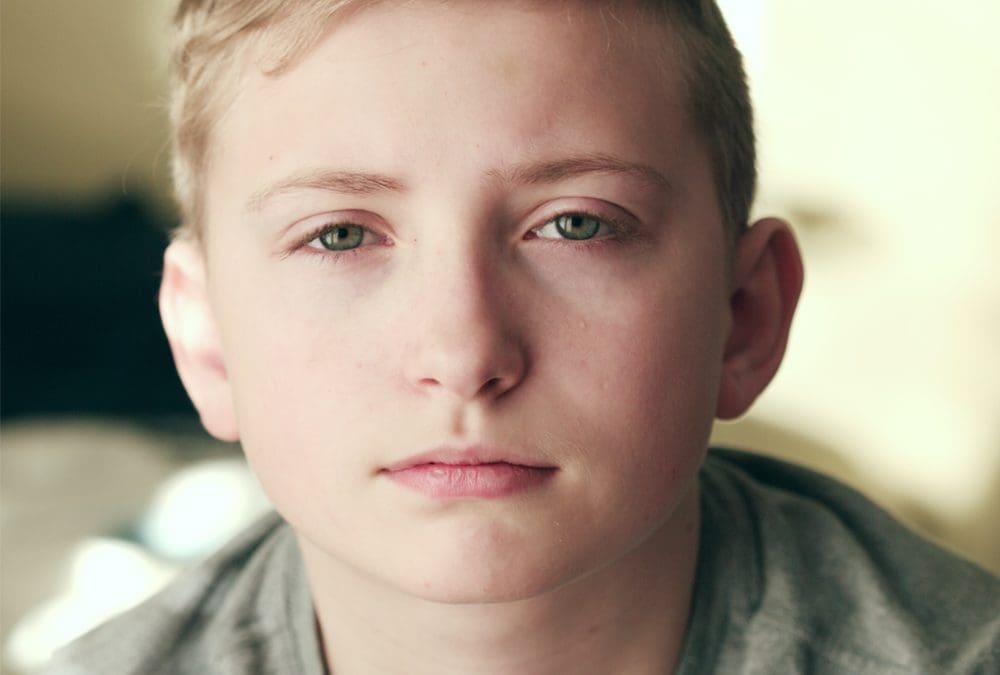Children react to stress and trauma in different ways. When a child internalizes their pain, it’s much more difficult to recognize than when they externalize their emotions. It’s important to watch for the warning signs that your child is internalizing their experiences so you can get them the help they need.
Early intervention is key to empowering a child to overcome this trauma and future emotional distress.
What is internalizing?
Children typically have two responses when they’re emotionally overwhelmed by a traumatic experience. Some kids externalize their feelings. This looks like acting out with bursts of anger, misbehaving in class, disobeying adult figures, and having temper tantrums. With these types of children, their pain is front and center. They’re more likely to get help from parents, teachers, medical professionals, and therapists.
A child who internalizes hides their pain. They withdraw into themselves and shut down to the outside world. They become quiet and have a hard time vocalizing what’s wrong. They’re much more easily overlooked because their emotional turmoil is less obvious. Even parents can overlook this behavior. Here are a few warning signs that your child might be internalizing their trauma.
1. They withdraw from socializing
Pay attention to how your child is behaving differently. Were they once gregarious, playing with lots of friends? Did they socialize with your family? Did they often enjoy going on outings and meeting new people? If that has changed, and they have begun to isolate themselves from others, it could mean they’re internalizing some pain.
2. They develop a low self-esteem
Children who internalize begin to display behaviors of low self-esteem. They might start talking negatively about themselves. They might feel like they can’t do anything right or will never be good enough. A child may talk about how they’re unlovable and unwanted by others. In drawings or art projects, they may represent themselves negatively on the page.
3. They have persistent aches and pains
Trauma often affects the body just as much as the mind. Children are often less able to articulate their feelings than adults are. You might notice your child suddenly complaining about frequent headaches or stomach aches.
Usually, these will be unrelated to any diagnosable illness. They may often feel sore. Sometimes, the stress of trauma will lower a person’s immune system. Your kid could be catching colds more frequently. They may also have sleep disturbances—insomnia, frequent nightmares, and restlessness.
4. They start struggling in the classroom
For a child who’s gone through something traumatic, paying attention in class can be difficult. They might be less willing to participate in discussions and struggle with staying on task. Their grades may slip as a result. This poor performance at school can also feed into their feelings of self-worth, creating a vicious cycle of damaging internalizing behavior.
Sometimes, teachers might categorize these behaviors as a learning disability rather than trauma. Again, pay attention to whether this withdrawing in the classroom is new for your child.
Getting your child the help they need
If you believe your child has experienced something traumatic, getting them professional help is crucial. Untreated childhood trauma can have effects that last well into adulthood. Trauma can cause emotional dysregulation, difficulty forming relationships and attachments, and is the root of many mental illnesses.
Good parenting can only go so far in addressing emotional trauma. Look for a therapist who focuses on childhood trauma so that your child can learn the tools they need to heal. A therapist can empower your child to learn emotional regulation and healthy coping skills to overcome their struggles.
To learn more about how therapy can help your child who’s internalizing their trauma, please reach out to us.
Home
Services
Insurance
Therapists
Contact
Mindworthy Therapy
info@
mindworthytherapy.com
847-497-5730
1933 N. Meacham Rd.
Suite 200
Schaumburg, IL 60173

Designed By:
Farm it Out! Design, Inc.

